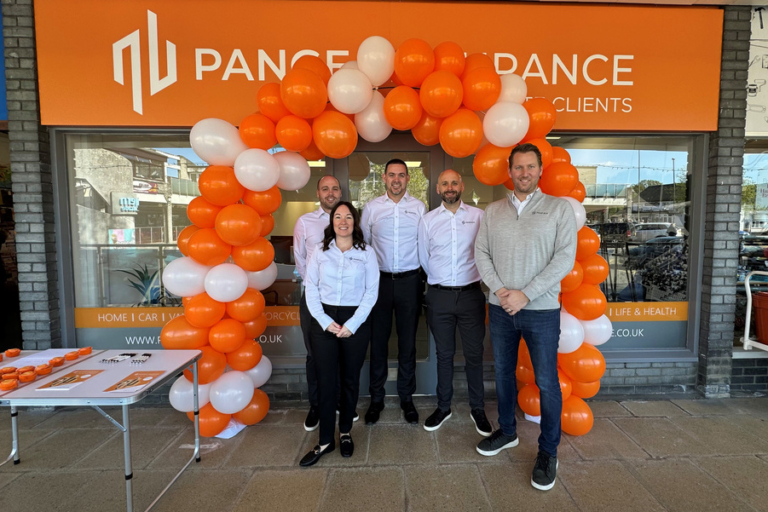The challenge of going global: Trends and tips for cross-border deals

Jonathan Williamson, partner in Blandy & Blandy LLP’s leading corporate team and cross border M&A specialist, gives his insight into recent cross border M&A trends, a 2017 outlook and his practical advice for getting cross-border deals over the line.
Trends and outlook
With the political and economic landscape shifting seemingly on a weekly basis and uncertainty surrounding the global trading landscape following the EU referendum and US presidential elections, M&A activity has been less consistent throughout 2016 and into 2017.
The volume of global M&A deals was down around 6% on 2015 with deal value down around 20% although it is worth noting that the back end of 2016 was stronger and 2015 was an exceptionally strong year. UK M&A fell by 55% within a struggling European market as a result of European businesses in general reacting with caution to the political and economic events of 2016.
The positives for the UK market are that acquisitive companies and investors have increased their overseas M&A activity with Europe and the UK benefiting from this trend. Inbound M&A was up over 30% with Chinese buyers are leading the charge in sectors such as energy and tech.
As events continue to unfold in 2017, some businesses will continue to proceed with caution whilst others will take advantage of the market conditions. These fluctuating market conditions have created far more opportunity for disruptive M&A strategy which should lead to a healthy deal flow throughout the year.
In 2016, the corporate team at Blandy & Blandy LLP advised on UK M&A transactions involving buyers or sellers in Taiwan, China, US, Australia, Singapore, Channel Islands and mainland Europe with a total value of circa £30 million. We have also helped various overseas businesses invest in the UK by way of set up, group restructuring or acquisition. We see no reason why this trend will slow and as We have invested heavily in our membership of the Law Firm Network which is a global network of independent law firms now covering over 50 jurisdictions. We have subsequently developed a strong and consistent referral network across over at least 10 of those countries and are seeing very positive activity from US, Australia, Germany, Singapore, Poland and Ireland.
Tips
Structuring and executing multi-jurisdictional deals is complex and the parties and advisors need to be prepared to apply a tailored approach depending on the jurisdictions involved to ensure success. In our experience, the following should be considered:
Visibility
To even attract overseas buyers, UK businesses need to be on the global radar whether it be by way of strong export presence, PR in overseas territories or formal partnerships with overseas businesses. Equally, unless you are operating in a niche sector or have a specifically valuable asset such as IP then overseas buyers like big sales figures. Sales of more than £10m will show potential for a global audience
Transaction Management
While it is often reported that overseas buyers will pay more than domestic buyers, there are other considerations which can eat into that deal value:
- Timing
European and certainly US buyers are used to moving quickly. US buyers in particular do not on the whole recognise “close of business” and will expect all parties to be available at such times and for such hours as it takes to get the deal done. Buyers from the East will not be rushed in the negotiation and review of documentation and so these timing issues need to be factored into the deal timetable and the management of the client’s expectations. - Culture
Transaction culture differs across the world. The way in which deals are structured and negotiated can vary hugely from jurisdiction to jurisdiction. The parties need to recognise these differences and draw on the experience of their advisors to interpret the meaning of communications to avoid either side mistaking a cultural issue for a deal breaking issue. For instance, it may be that the deal culture is for all communication to be conducted between solicitors only as opposed to getting clients to talk through commercial issues directly as is often encouraged. - Logistics
In any transaction, there is a high level of input required from all parties. In the event that the parties and advisors are spread across different time zones, this inevitably leads to logistically issues which all concerned need to recognise, plan for and commit to. In our experience, the more opportunity the various parties have to speak to each other the better and this can be challenging when dealing with cross border transactions. - Technology
Technology continues to be an important facilitative tool for international acquisitions. With transactions that commonly span numerous time-zones and may involve a significant number of jurisdictions, the ability to store and share data centrally, while making it available to a large group in a seamless and secure fashion can be vital to efficient transaction management. It is almost invariably now the case on all but the smallest transactions that due diligence materials and other information needs to be available using an electronic datasite to firstly ensure it is safely stored and secondly to make it available 24/7 to multiple users.
In addition, video conferencing and web-based live meeting software can allow groups of people who are based in numerous dispersed locations to come together and collaborate in real time, while also allowing them to review and mark up documents in a manner that all participants are able to see and discuss contemporaneously. As this would not be possible physically without incurring considerable time and expense, the benefits of using virtual meeting technology should not be underestimated.
Legal
Regional variances in the way M&A transactions are commonly conducted should also be taken into account. Examples include:
- It is standard practice in the US to seek indemnification of warranties but this is not the case in the UK, where, apart from negotiating a tax indemnity, indemnities are negotiated on a case-by-case basis. In some other jurisdictions the preparation of a disclosure letter is not normal practice so time needs to be sent agreeing an approach dealing with disclosure.
- Regulatory issues are a key factor when conducting international transactions. Antitrust authorities have recently become more assertive and more aggressive in bringing enforcement proceedings against parties who have breached their filing regimes. Regulatory authorities have, in general, also similarly become more assertive. For example, filings with the Chinese antitrust authority (MOFCOM) can often be a cause of significant delay, even where Chinese revenue or assets only form a relatively minor constituent part of the transaction.
- In some continental European jurisdictions such as France and Italy, a letter of intent may be construed by the courts as a binding pre-agreement if it contains key terms such as the parties, price and conditions precedent. It is therefore essential that the language in the letter of intent is consistent throughout in expressing that the letter is not legally binding
- If a US listed company (or one of its subsidiaries) enters into a letter of intent, the listed company may, under certain circumstances, be obliged to publicly disclose the agreement. Liability may also arise for third parties that trade in the market after the execution of the letter of intent without knowledge of the terms of the potential transaction
- There may be discussion around the jurisdiction and governing law provisions applying to the transaction. As the English legal system provides a stable and predictable framework for the execution of these types of transaction, it is often the case that the parties will agree that English law is the appropriate law to govern their transaction
Summary
Cross-border acquisitions continue to form an important part of the growth strategy of many corporate entities. In an increasingly regulated world, these transactions often present a broader range of challenges than those which a buyer might encounter on smaller transactions within their domestic market. They therefore require careful planning to ensure smooth execution.
Having the right team in place from the outset can help to ensure an efficient and smooth process. With its experience of international transactions and its global network of contacts, our Corporate team is perfectly positioned to advise clients who are either considering making an overseas acquisition or selling to an overseas buyer.













